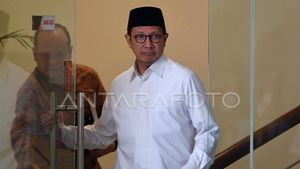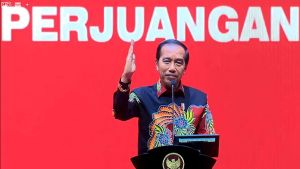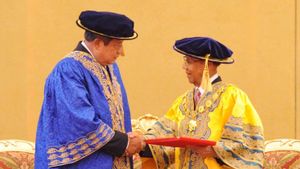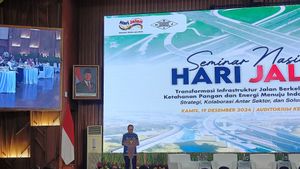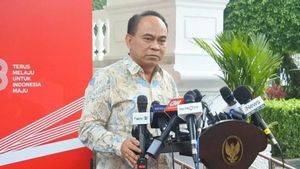JAKARTA - The Dutch colonial dependence on the natives is undeniable. They used priyayi to perpetuate power. The priyayis were used as Dutch footballers: bumiputra officials. Village head, one of them.
This position gives them the power to collect taxes. The goal is to enrich the white man and of course himself. The practice of corrupt lives lasted quite a long time. Instead of just fighting tax allotments, village heads also often travel through Muslim zakat money.
The image of the natives was never good in the eyes of the Dutch colonialists. This condition has been going on since the reign of the Dutch trading airline, the VOC. The natives were labeled so bad. From being considered unable to work properly to like war.
The narrative made the Dutch colonialists not want to use the services of the bumiputras in government. In fact, the bumiputras were placed in the lowest strata. New changes emerged when the VOC went bankrupt and was replaced by the colonial government of the Dutch East Indies.
The mindset of the past colonialists is trying to be abandoned. All kinds of narratives that considered the Bumiputras bad began to be reduced. Even though they are still racist. Dutch colonialists realized colonialism would not succeed without the help of the natives themselves.
Since then the politics of embracing the style of Dutch colonialists has been perpetuated. Many bumiputras were made into the bestlands or Bumiputra officials. The village head, especially. The position of village head was also the prima donna, even though they were not paid directly by the Dutch.
They get big powers as tax collectors of the bumiputras. Every tax that is withdrawn, the village head gets a large percentage. They also have the power to reverse every tax withdrawn.
The narrative increased when the Paksa Plant era (1830-1870) occurred. The village head is like a collapsed durian. They made a big profit, in the midst of the condition of their people being squeezed like dairy cows. This condition made the position of the village head a fight. Whoever can become the village head, they can hold the position for life.
"Generally, a head is chosen every year or every three years, even though an old official can be re-elected and often serve for life, or be replaced by his son. Election is only a confirmation of his position for the population. Once elected, the village head can gain trust and influence, both for himself and his family.."
"This election can be misused, so that the position of a village head is actually more dependent on the regent than the villagers. The regent can easily field a village head, and for his personal interest hold a re-election to get rid of a village head," said Ong Hok Ham in the book Madiun in History: Priayi and Farmers at the XIX Century Madium Residence (2018).
The village head often perpetuated his power in the Paksa Park era. They became Dutch accomplices who ensured that all kinds of export quality plants were planted by the villagers. They are also given the power to terrorize anyone who does not perpetuate the colonial order.
The task made the village head's pocket full of money. The bag of the village head is getting fatter because they continue to collect village taxes. Then, they also get the right to manage land that is up to the village land that is used to finance their salaries.
A series of roles did not necessarily make the village head complacent. They continue to work on the agenda of finding loopholes in income. They are sometimes assigned by local scholars to withdraw zakat from Muslim natives.
This activity is indeed effective. This is because the village head is able to come and know those who are obliged to pay zakat. Problems arise. The withdrawal of zakat is not on a voluntary basis. They still ask for the appropriate reward. Even if they don't ask, they will embezzle their own zakat.
This condition took place for generations. The image of the village head is getting worse. First, because they are Dutch thugs. Second, because they perpetuate corruption, even religious interests they are able to cheat.
"That village heads enjoy some of the zakat and fitrah that enter, it is a common thing for reasonable reasons, before the interference of the European government in this matter, and also if the indigenous officials still do not interfere in this matter at all. The question is, is the Central Government in 1866 it is quite wise when under any circumstances it withdraws its pleasure for just that part of income.
"However, the ban has already been issued. So, when in 1897 the village heads turned out to have enjoyed this part since all human memory, it was proven that the Regional Government had not enforced the regulations," explained Snouck Hurgronje in the book Nashah-Nashah C. Snouck Hurgronje During his staffing period to the Dutch East Indies Government 1889-1936 (1992).
VOIR éGALEMENT:
The English, Chinese, Japanese, Arabic, and French versions are automatically generated by the AI. So there may still be inaccuracies in translating, please always see Indonesian as our main language. (system supported by DigitalSiber.id)






